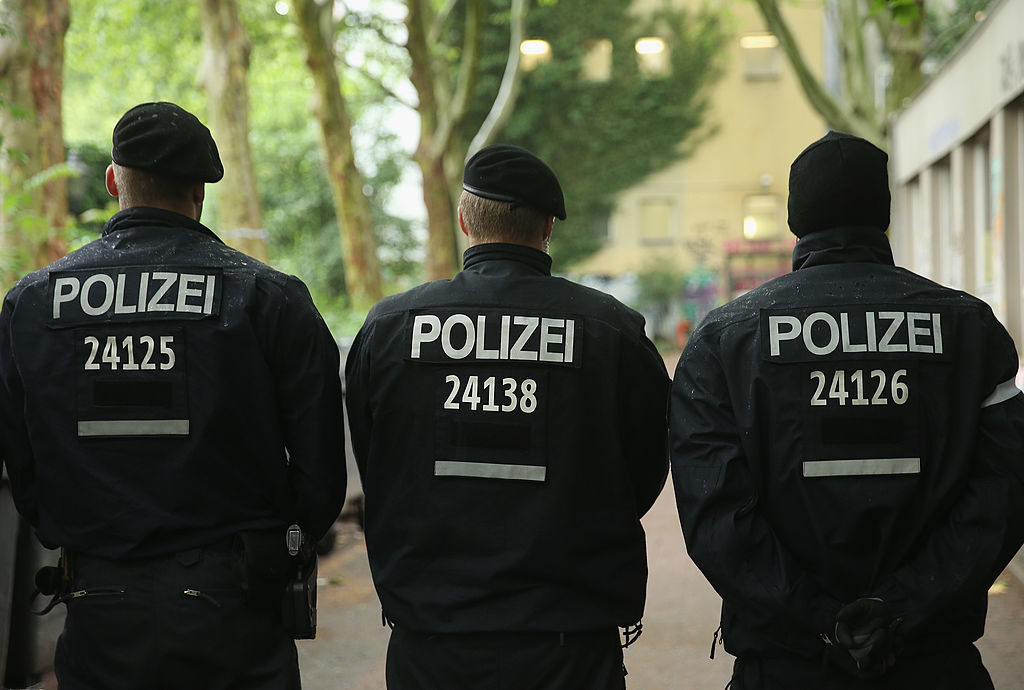Politics
Artist Proposes Monument for Drug Dealers in Berlin
The proposal has even gained political support.

The proposal has even gained political support.

Henri Neuendorf

The Berlin-based American artist Scott Holmquist has called for a monument to be erected in a park in the district of Friedrichshain-Kreuzberg in honor of African drug dealers. And he’s even gained political support.
In a petition submitted to the Pirate Party—a leftist party advocating direct democracy and civil participation, which occupies four out of 51 seats in the Friedrichshain-Kreuzberg district assembly—the artist writes, “Drug dealers perform a socially valuable service appreciated by many people—especially where they are easily reached, in the middle of the neighborhood, and especially in parks.”
Holmquist argues that Berlin’s African drug dealers are unjustly victimized and villainized. “The erection of a monument would be a sensible and important recognition of this high-risk profession,” he wrote, “and a potent reminder of the ongoing struggle against the consequences of colonialism.”
In an email to artnet News he added, “The idea for the monument has two main levels. One explores the possibility of making any monument at all to a hero in our time. The second celebrates, dignifies and remembers people who have been subject to extreme bigotry, violence and persecution while they perform dangerous work at the forefront of social advancement.”

Görlitzer Park, the proposed site of the monument in Berlin. Post: Wikimedia Commons.
The petition is currently being debated by the Pirate Party, according to Berliner Zeitung. Party spokesperson Felix Just told artnet News, “We welcome this proposal because it allows for the discussion about the conditions in Görlitzer Park to be expanded beyond a debate over criminality.” He explained, “The situation relates to many aspects of social life, such as flight and refuge, drug trafficking and smuggling, and dealing with asylum seekers.” He added, “A monument doesn’t always need to be equated to a distinction, it can—and should—stimulate thought and debate.”
Unsurprisingly, not everyone supports the proposal. The area surrounding Görlitzer Park is one of the most problematic in Berlin. According to Berliner Zeitung there are currently ca. 500 open drug-related police investigations, and residents are deeply concerned and annoyed.
Related: The Berlin Art Scene Explained by Five of Its Tastemakers
Commenting on the online petition, one Berliner, Tom Cenic wrote “Be honest. How stoned do you have to be to submit something like this? Should we also erect a monument for Georgian burglar gangs? Or North African gropers? The Pirate Party increasingly appear to be a pseudo-party of crazies. Please come back to reality. Society as a whole is at stake, not your silly individual ideas.”
Unfazed by the criticism Just confirmed that the Pirate Party will put forward the petition in the district assembly’s next legislative period in October. However he conceded, “I’m afraid this proposal doesn’t have particularly good prospects to be accepted because the politics and policy on drugs and addiction in Germany is unfortunately still very tense and are largely characterized by unfounded fears,” he said. “We still look forward to the debate on this subject.”
Whatever the outcome of the political discourse, Holmquist remains undeterred. “I will erect a monument,” he said, “if only temporarily, in late 2017.”